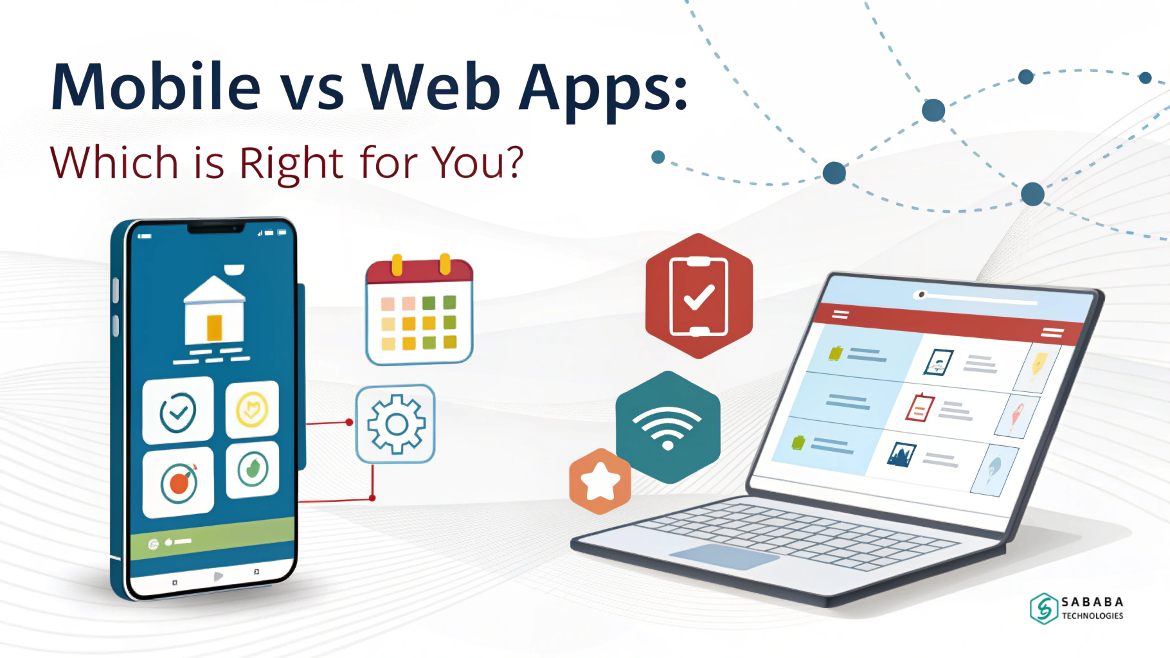Discover a clear comparison between mobile vs web apps to help business owners and startup founders make smarter decisions.
In today’s fast-paced digital economy, one question continues to challenge entrepreneurs: Should I invest in a mobile app or a web app? While both options unlock unique opportunities, the right choice depends on your goals, resources, and target users. In this article, we’ll dissect mobile vs web apps, highlight their core differences, and give you the clarity needed to choose wisely.
What Are Mobile Apps?
Mobile apps are software applications designed specifically for smartphones and tablets. They are downloaded from app stores such as Apple’s App Store or Google Play, and they operate natively on a device.
Key traits of mobile apps:
- High performance with smooth user experiences
- Access to device features like GPS, camera, and notifications
- Offline usability in many cases
- Requires installation and updates
When discussing mobile vs web apps, it’s important to note that mobile apps shine in personalization and performance, especially for businesses that want to stay directly connected to their customers.
What Are Web Apps?
Web apps are browser-based applications accessed via a URL. They don’t need to be downloaded; instead, they function on any device with internet access.
Key traits of web apps:
- Easy to maintain and update
- Accessible across devices and platforms
- No installation required
- Cost-effective development compared to native mobile apps
For businesses evaluating mobile vs web apps, web apps often deliver the advantage of broader reach without the heavy investment of app store compliance or device optimization.
Mobile vs Web Apps: A Side-by-Side Comparison
To help you visualize the distinction, here’s how mobile vs web apps differ across crucial dimensions:
| Feature | Mobile Apps | Web Apps |
| Accessibility | Requires download | Runs in browser instantly |
| Performance | Faster and optimized | Depends on internet speed |
| Cost | Higher development & maintenance | Lower development & upkeep |
| Updates | Users must download updates | Automatic, seamless updates |
| Device Features | Full access (GPS, camera, push notifications) | Limited integration |
| Reach | Limited to specific platforms | Universal access |
When Should Businesses Choose Mobile Apps?
A mobile app is ideal if:
- You need to use device hardware like GPS, biometrics, or notifications.
- Your brand thrives on personalization and loyalty programs.
- You want a long-term solution with immersive user engagement.
For example, food delivery businesses, fitness tracking services, or ride-hailing startups often find mobile apps indispensable. In the debate of mobile vs web apps, mobile apps dominate where deep engagement and customer retention are key.
When Should Businesses Choose Web Apps?
A web app is the right fit if:
- You want cost-efficient development with cross-platform usability.
- Your focus is on reaching a wide audience quickly.
- Updates and maintenance need to be seamless and low-cost.
SaaS platforms, online booking portals, and e-learning solutions frequently rely on web apps. Within the mobile vs web apps discussion, web apps win when accessibility and agility are more important than heavy personalization.
Hybrid and Progressive Web Apps: The Middle Ground
Not every decision is strictly “either-or.” Progressive Web Apps (PWAs) and hybrid apps combine elements of both worlds. PWAs, for example, can work offline, mimic native app experiences, and still remain browser-based. This makes them an intriguing alternative for startups hesitant about committing solely to one side of the mobile vs web apps debate.
SEO and Visibility Considerations
From a visibility perspective, web apps often edge ahead since they’re indexable by search engines, boosting discoverability. Mobile apps, on the other hand, rely heavily on app store optimization (ASO). Business leaders weighing mobile vs web apps should consider how users will find their product—via Google search or app store browsing.
Both mobile and web apps bring unique strengths to the table. If you value speed, personalization, and access to device features, mobile apps are the right fit. If your goal is reach, cost-effectiveness, and ease of maintenance, web apps are your best bet.
There is no universal answer—only the solution that aligns with your business objectives, budget, and customer expectations.
FAQs
1. What’s the biggest difference between mobile vs web apps?
Mobile apps run natively on devices, while web apps operate through browsers without installation.
2. Are mobile apps always more expensive than web apps?
Generally yes, because mobile apps require platform-specific development and updates, while web apps are more affordable to build and maintain.
3. Can web apps work offline like mobile apps?
Most web apps need internet access, but Progressive Web Apps (PWAs) can offer offline functionality.
4. Which option is better for startups?
Startups often prefer web apps initially due to lower costs and faster launches, then move to mobile apps as they scale.
5. Do mobile apps have better user engagement than web apps?
Yes, mobile apps usually offer stronger engagement thanks to push notifications, smoother performance, and better personalization.
Feeling more like puzzles than solutions? That’s when Sababa steps in.
At Sababa Technologies, we’re not just consultants, we’re your tech-savvy sidekicks. Whether you’re wrestling with CRM chaos, dreaming of seamless automations, or just need a friendly expert to point you in the right direction… we’ve got your back.
Let’s turn your moments into “Aha, that’s genius!”
Chat with our team or shoot us a note at support@sababatechnologies.com. No robots, no jargon, No sales pitches —just real humans, smart solutions and high-fives.
P.S. First coffee’s on us if you mention this blog post!



